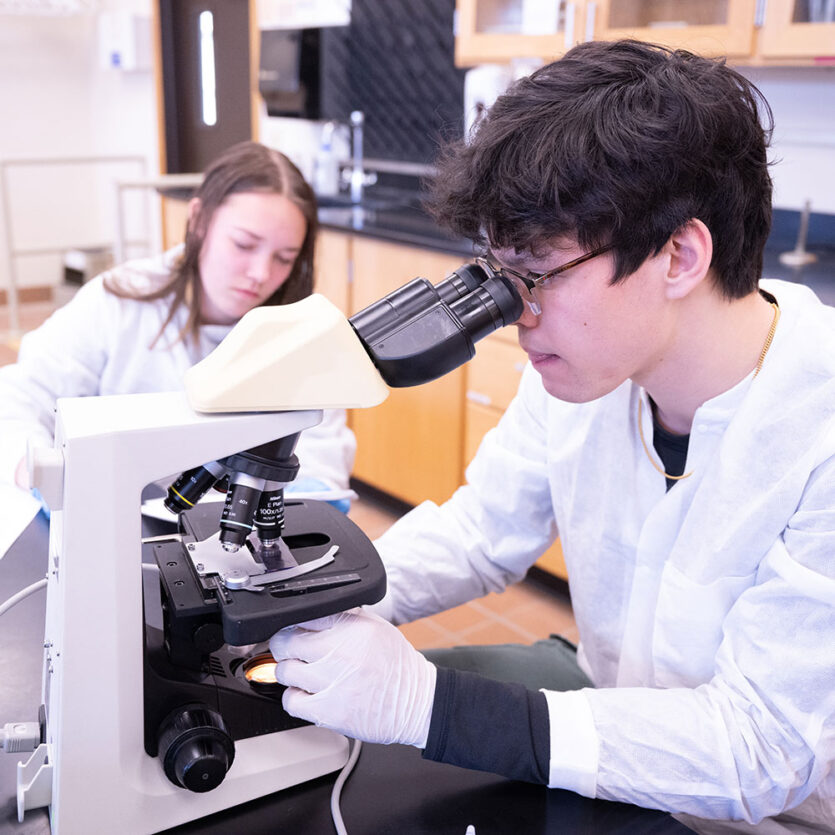Building a successful resume can be a daunting task. Throw in all the specifics of your academic major and daunting now feels overwhelming. However, building a resume doesn’t need to be an intimidating task. Your resume should simply and clearly communicate the most important information about you so the reviewer can make an educated decision. Follow along for tips and tricks on how to build a resume that puts your best foot forward.
Step 1: Give Them the Basics
Contact Information
Start by giving your name, address, phone number, and email. Choose an email that represents you as a young professional, this isn’t the time to pull out your middle school email with your favorite animal, color, and number.
Objective
Start by deciding what you are looking for and clearly tell the hiring manager. Each area or job, Research Lab Technician, Medical School, PA Program, Dental School, Graduate School, Veterinary School, or a School of Chiropractic, have unique areas of focus. Once you decide where or to what you are applying you can highlight specific skills in that area. This gives them an extra assurance that you put effort into their role they’re hiring for instead of simply giving them a basic copy and paste of what you learned in school.
Education
Education is important, but it shouldn’t receive more than a line on your resume. Instead, Recruiters are looking for skills and experience. What did you do with the opportunities that you had through your education and how did you pursue opportunities outside of the classroom?
Step 2: Craft your Experiences
Industry Experience
Resumes start with your own drive as a student and young professional. You have more experience than you think, all it takes is a little extra effort to sell your skills.
Start off by reviewing your college and work history and think through how each prepared you for the area you are interested in. Across your various classes, list the basic skills that were covered. Did you complete a project or presentation on something related to your desired field? Did you have an internship that contained industry relevant experience? Did you use relevant equipment in school or through an internship?
Pro Tip: Use keywords related to your field to optimize your resume for Applicant Tracking Systems (ATS). Hiring software often filters out resumes that don’t contain enough relevant industry-specific keywords.
Research Projects or Internships
For any specific areas of focus, you should highlight them in depth. Did you conduct a research project? What skills did you learn and what objectives were accomplished? Did you participate in an internship? What did you learn and how did you add to the company you were a part of? How many hours did you give to these projects or internships?
Additional Skills
Outside of your field, do you have any learned skills that apply to the field you are interested in? Public speaking, acting, writing, music, as well as various other skills can also be relevant to a job or school. Public speaking and writing are intuitive, but acting shows adaptability and creativity and music shows dedication and an ability to take direction. Use your extracurriculars, whatever they might be, to highlight your unique skillset.
Ensure you highlight any additional relevant experience. This can mean a simple list highlighting relevant proficiencies in software, practices, or operating systems that prove your competency in the basics alongside your relevant industry experience.
Step 3: Write a Cover Letter
With each application, write a personalized letter explaining to the hiring manager or admissions team why you want to pursue this next step. Submitting an application is throwing your hat in the ring, but writing a cover letter gives background on who you are and why you want this opportunity. Do your research on the company, school, or program and prove that you are genuinely interested in the opportunity.
Throughout the process, remember you are equipped for your next chapter. Everything that you have learned so far has led you to this point. You got this!
Resume example:


Not majoring in the Sciences? Reach out to Career and Leadership Development and find out more about crafting a resume for your field of study.


